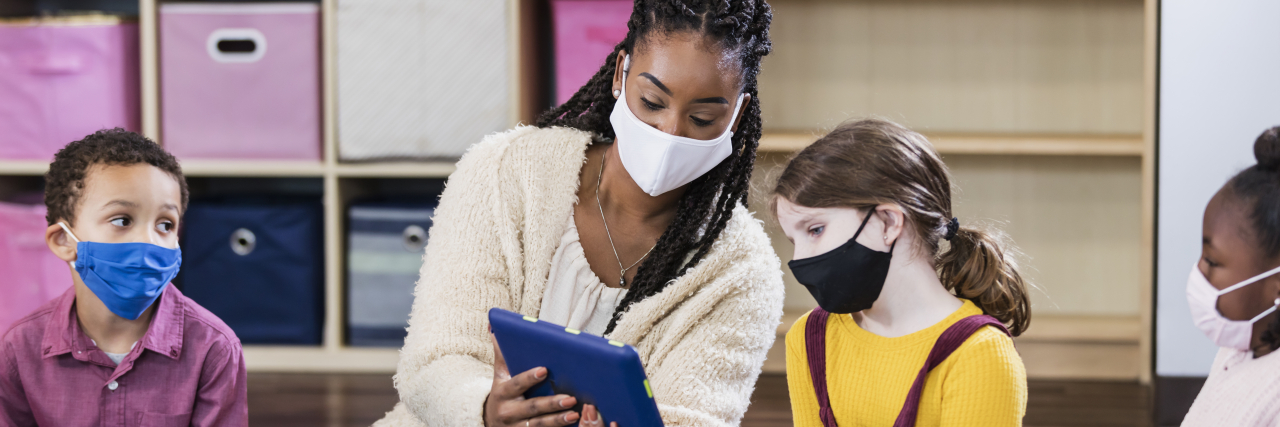Parents of disabled children together with Disability Rights Texas won a ruling in November that could have ramifications well beyond the state of Texas. In July, Texas Governor Abbot issued an executive order, GA-38, that prohibited schools from instituting a mask mandate. He insisted that whether a child should be compelled to wear a mask should be up to a child’s parents.
Judge Lee Yeakel declared that the Governor’s order violates the 1990 Americans With Disabilities Act (ADA) by excluding “disabled children from participating in and denies them the benefits of public schools’ programs, services, and activities to which they are entitled.”
This was immediately seen as a win for disabled students in Texas, who, like their cohorts elsewhere, have been disproportionately affected by COVID-19, the ensuing school closures, and breakdowns in the provision of needed services.
Children with disabilities are especially vulnerable to COVID-19. They catch the virus more easily and have a greater likelihood of serious illness or death.
It is also a win for parents of disabled children in other states across the nation who would have a playbook to follow to help protect the rights of their children to safely attend school.
Unfortunately, the victory did not last long.
Attorney General Paxton recently filed and was granted an emergency motion to stay the district court’s injunction prohibiting the enforcement of GA-38 in Texas public schools. Now parents and Disability Rights Texas must appeal – but there is great hope that they will win on the merits of the case.
Why does it matter so much?
Should the appeal be successful, it would be a win for all students in Texas, disabled or not.
COVID-19 variants such as Delta and now Omicron are a significant threat. Since the start of the 2021-22 school year, at least 45 districts have been temporarily shut down due to COVID-19 outbreaks among the student body and staff. The impact has been felt by about 42,000 students and their families.
A favorable ruling upon appeal could also be a win for all the nation’s children. Even as children would mask up to protect those unable to do so, masking offers powerful protection to those who can and do.
Mask mandates have proved successful in keeping schools safe and open. The CDC reported in September that three studies of counties without masking requirements saw the number of pediatric COVID-19 cases increase two to three times more than those who had mandates in place during the same period. With more pediatric cases, we have more children ill and hospitalized, and even deaths.
Studies confirm that localities without mask mandates have suffered more losses in the number of school days open. Children out of school also result in parents forfeiting workdays.
It is worth stepping back to see why the rights of disabled children can have the potential to have such a long reach. Without the Individuals with Disabilities Education Act, by which children with disabilities were integrated into the school system, the rebuke to Abbot’s order would not have been imaginable. Similarly, it would not have been possible without legislation such as the ADA, which protects the rights of people with disabilities to access needed services and accommodations.
It is equally important to understand how the world already has been made better, in small as well as large ways, when people with disabilities are included and their rights and needs recognized. Curb cuts and ramps are everyday examples. Intended for wheelchair users, they also answered a need for the parent with a stroller, for the traveler with wheeled luggage, for the elderly woman with a shopping cart. These turned out to meet needs many had never realized were unmet.
The Texas decision can be such a benefit — if the stay is lifted and the parents and Disability Rights Texas prevails.
Too often people with disabilities have been viewed as a burden and only that, for families, the community, and the nation. The decision on this lawsuit, if upheld, directly challenges such a view. Making an environment safer and more suitable for people with disabilities continues to have crucial positive benefits for all of us.
Getty image by kali9.

